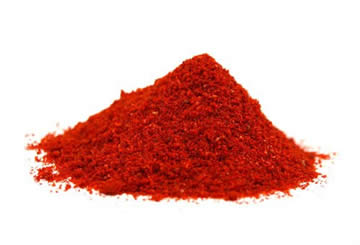Astaxanthin is a naturally occurring carotenoid found in nature primarily in marine organisms such as microalgae, trout, salmon, shrimp, krill, crayfish, and crustaceans. In nature, astaxanthin is usually found either conjugated to proteins, or esterified with fatty acids. The green microalga H. pluvialis is considered the richest source of astaxanthin. The microalga Haematococcus pluvialis has the highest capacity to accumulate astaxanthin up to 4-5% of cell dry weight.
Immune Enhancer and Anticancer Effects
Studies have demonstrated significant role played by natural carotenoids in regulating immunity and disease etiology. Astaxanthin, in animal-model research, enhances antibody production and even restores, in part, the decreased humoral immune response typical of older animals. Astaxanthin enhances the numbers and activity of lymphocytes and natural killer (NK) cells that are responsible for creating the body’s innate immune response to invaders. “University of Minnesota” researchers find astaxanthin increases production of T-cells and boosts antibody production. In Japan, scientists approve that astaxanthin action on T-cells activates the immune response to fight ailment and inhibits autoimmune reactions. One study by Japan’s “Osaka Kun-Ei Women’s College” studied the immunomodulating impact of a variety of carotenoids, including astaxanthin and beta-carotene, and found that even low concentrations of astaxanthin had more immune-boosting effect than either of the other carotenoids tested.
Research findings show that -astaxanthin works through many different pathways to support healthy immune function. In a double blind, placebo controlled clinical study, (Dr. Chew and his team) demonstrated that astaxanthin is a powerful immune system stimulator. The study demonstrated that astaxanthin;
•Significantly reduces DNA damage.
•Stimulates lymphocyte proliferation.
•Increases natural killer (NK) cell cytotoxic activity.
•Produces increased number of T-cells
•Enhances the total number of antibody producing B-cells
 In a study examining astaxanthin’s impact on immune response, scientists from “Washington State University” divided 42 women into one of 3 groups: placebo, 2 mg astaxanthin, or 8 mg astaxanthin daily. After 8 weeks of supplement, blood levels of astaxanthin in both astaxanthin groups were found to be significantly higher. Also, both levels of astaxanthin improved activity of natural killer cells, which target. At the end of the study, the levels of a very significant marker of DNA damage was found to be 32% and 43% less for the 2mg and 8mg groups as compared to the placebo group.
In a study examining astaxanthin’s impact on immune response, scientists from “Washington State University” divided 42 women into one of 3 groups: placebo, 2 mg astaxanthin, or 8 mg astaxanthin daily. After 8 weeks of supplement, blood levels of astaxanthin in both astaxanthin groups were found to be significantly higher. Also, both levels of astaxanthin improved activity of natural killer cells, which target. At the end of the study, the levels of a very significant marker of DNA damage was found to be 32% and 43% less for the 2mg and 8mg groups as compared to the placebo group.
Astaxanthin was found to be an effectual anti-tumor agent in a series of studies on mice and rats at the Gifu University School of Medicine in Japan. In a study found that astaxanthin significantly decreased both the incidence and the proliferation of chemically-induced bladder cancer in mice. In March 2010, researchers at “Washington State University” showed that astaxanthin inhibits cancer cell growth by decreasing free radical-induced cellular damage, reducing inflammation and increasing immune response. The effect of astaxanthin to inhibit the growth of colon cancer cells was investigated at “Catholic University School of Medicine“. Astaxanthin resulted in a 220% enhance in the expression of the anti-cancer gene p 53, and a 160% and 250% enhance respectively in the anti-cancer genes p21 and p27.
In 1995, researchers demonstrated that astaxanthin prevents oral cancer in rats, and inhibits cancer in a manner more pronounced than that of beta carotene. Astaxanthin showed 98% inhibition of 5alpha-reductase at 300 microg/mL in vitro. Inhibition of 5alpha-reductase has been reported to reduce the symptoms of BPH (benign prostate hyperplasia) and probably inhibit or help treat prostate cancer. In one study, scientists transplanted tumor cells into mice and found that astaxanthin inhibited the growth of the cancerous tumors in a dose-dependent fashion. In another study; was found that when astaxanthin supplementation was started both at 1 week and also at 3 weeks prior to the tumor inoculation, growth was inhibited. But, when the supplement with astaxanthin began at the same time as the tumor inoculation, the efficacy was not found. The result of this study was that astaxanthin may work better in the early stages of tumor development. Another mouse study, at “Washington State University”, demonstrated astaxanthin inhibits the growth of mammary tumors in mice by modulating tumor latency and exerting antioxidant properties.
Leave a Reply